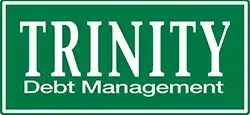
Trinity Debt Management, a long-standing organization, aims to assist individuals in managing their financial obligations, particularly credit card debt, through a structured debt management program. This entity distinguishes itself by embracing a Christian-centric ethos in its operations. As consumers navigate the complexities of financial recovery, understanding the operational nuances, service limitations, and client experiences associated with such agencies becomes paramount to making an informed decision about their debt relief journey.
Founded in Cincinnati, Ohio, in 1994, Trinity Debt Management operates as a nonprofit organization, a common characteristic among credit counseling bodies. Its unique selling proposition lies in its faith-based approach, catering to those who prefer financial guidance aligned with their Christian values. Despite its extensive history, the agency's service portfolio is somewhat narrow, primarily offering two core services: credit counseling and debt management plans. During a credit counseling session, individuals receive a complimentary consultation where a counselor helps them analyze their financial situation, including income, expenditures, and outstanding debts, to pinpoint areas requiring improvement. For those enrolled in a debt management plan, Trinity acts as an intermediary, negotiating with credit card companies to secure more favorable terms, such as reduced interest rates or waived late fees. Typically, the agency has been successful in lowering credit card interest rates from an average of 22% to around 8%. Following successful negotiations, the client's credit accounts are usually closed, and they make a single monthly payment to Trinity, which then distributes the funds to creditors after deducting its administrative fee. The duration of these debt management programs generally aligns with industry standards, taking approximately three to five years to complete.
While Trinity Debt Management may appeal to individuals seeking a faith-aligned solution for credit card debt, it's crucial to acknowledge certain limitations and concerns. Unlike some other credit counseling agencies, Trinity does not provide a broader range of support services, such as foreclosure prevention assistance or official bankruptcy courses. Furthermore, the agency has been criticized for a lack of transparency regarding its fee structure; while initial credit counseling is typically free for nonprofit agencies, Trinity does not explicitly state this, nor does it provide upfront information on debt management plan enrollment fees. Recurring monthly fees for debt management plans range from $8 to $50, with an average payment of $34. Customer reviews for Trinity Debt Management are mixed. While some clients appreciate the supportive, Christian-focused environment and positive interactions with counselors, others have reported issues such as increased monthly payments, delayed payments to creditors by the agency, and subsequent damage to their credit scores. The agency's communication channels also appear limited, with operational hours confined to weekdays and reports of unresponsiveness to inquiries. Moreover, Trinity's services are not universally available across all U.S. states, specifically excluding Kansas, Montana, Nevada, New York, and Rhode Island. Another point of concern is its lack of accreditation by prominent industry organizations such as the National Foundation for Credit Counseling or the Financial Counseling Association of America, which could be a red flag for potential clients seeking validation from recognized bodies. For those considering Trinity Debt Management, the process involves gathering comprehensive financial details and contacting the company via its website form or phone for a free consultation. Given these factors, prospective clients might also explore alternative nonprofit credit counseling services like Apprisen or Cambridge Credit Counseling, which often offer a wider array of services, better customer satisfaction ratings, and more transparent operations. Additionally, for-profit debt settlement companies, such as National Debt Relief, can be an option for individuals with significant unsecured debt who may not qualify for a DMP or bankruptcy, though these solutions come with their own set of risks and trade-offs.
Ultimately, choosing a debt relief provider demands careful consideration of an individual’s financial situation, personal values, and the agency’s track record. While Trinity Debt Management offers a specific niche for those valuing a Christian-centered approach, its operational transparency and service breadth may not meet everyone's expectations. Thorough research into all available options and understanding the associated risks and benefits is essential to navigating the path to financial stability.
